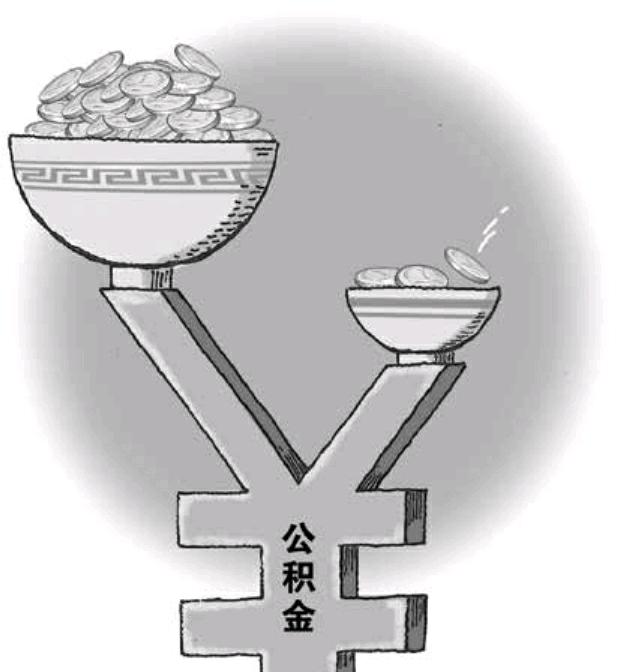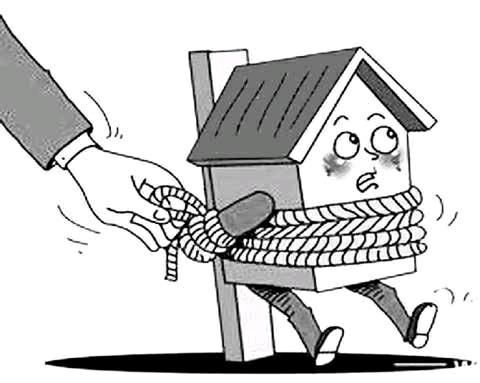Public Housing Fund Benefited High income Groups more than Low-income Earners
2017-05-26
In order to generate funding for housing development, the Chinese Government introduced the Housing Provident Fund Scheme(HPF) in Shanghai in 1991.
Public Housing Fund
Since the mid 1990s, China be- gan to adopt the housing fund system aiming to help citizens with their housing needs. Theoretically a savings fund, the system requires employees and employers to save a certain amount of money to the Housng Fund Management Center. When employees want to buy, build or renovate apartments or houses, they can withdraw the fund or use the fund account to get loans from banks.
Housing problems in major cities in China have remained largely unsolved. Under the traditional planned economy since 1949, all housing production was the responsibility of the State. Due to the lack of finance, new housing production has not been able to keep up with the increasing urban population. Urban housing reform introduced in 1988 proposed a strategy of developing affordable housing for the ordinary households through the private housing mar- ket.
In order to generate funding for housing development, the Chinese Government introduced the Housing Provident Fund Scheme(HPF) in Shanghai in 1991. Under the HPF, all employees were required to contribute a proportion of their salaries to HPF and employers contributed a similar amount. Accounts for individual workers were set up in the Construction Bank of China. Workers are allowed to withdraw their HPF savings when they retire, alternatively they can use their HPF savings to purchase homes in the private housing market, or from the Comfortable Housing Projects. HPF is now implemented in most cities in China, although there are some variations in the operation of Scheme.
Less Accessible to Low-income Groups
Chinas housing fund has become less accessible to lowincome groups because of an unwillingness of particularly private-sector employers to contribute to it and because of red tape, a study has found.
The fund, setup by the government after the abolition of housing subsidies for workers, allows employees to save money towards home purchases. The deposits can be used as collateral for loans with lower interest rates than the market rate. Balances can also be withdrawn for down payments, construction and renovation, or to pay back a mortgage.
Chinese workers on average contribute about 10% of their monthly salary and employers add another 10% to the fund, which is managed by the Ministry of Housing and Urban-Rural Development.
But only about 30% of the contributors have benefited from the fund so far, due to red tape that makes it difficult to access the fund, according to a report released by Beijing Normal Universitys China Institute for Income Distribution.
Homebuyers must wait up to six months to access the fund, whereas a commercial loan takes only two to three months, researchers said.
There is also significant paperwork involved to withdraw money to cover mortgages and home remodeling costs, said Wan Haiyuan, vice director of Beijing Normal Universitys China Institute for Income Distribution.
The study also found that the fund benefited high-income groups more than low-income earners, though the latter need more support. Soaring property prices, particularly in big cities, make it difficult for those in low-income brackets to buy a home, Wan said.
Nearly 5% of contributors in the top-fifth income tier had tapped into the fund, while less than 1% of low-income earners, or the bottom 20%, had accessed the fund, researchers found.
None of those who made 22,000 yuan a year applied to use the money in their housing fund, the report said. When workers incomes rose beyond 36,000 yuan, they tended to use the fund to help finance renovations or down-payments, it said.
No Social Pool
Unlike other welfare programs, the housing fund has no social pool, and the entire amount goes directly to employees personal housing accounts. After retirement, the remaining balance can be withdrawn and used at will.
The number of workers who have contributed to the housing fund rose from 61 million in 2004 to 124 million in 2015. This accounted for about 40% of the countrys workforce, the report said.
However, some employers unwillingness to contribute to the fund has meant large swaths of workers, particularly in the private sector, have been shut out of the fund.
About two-thirds of workers in state-owned enterprises made payments to the fund, whereas less than 10% in the private sector did so, because their employers refused to contribute, the report said.
Nearly 90% of civil servants and employees at non-profit institutions backed by the governments, such as public schools and think-tanks, had a housing fund account, it said.
Regulators must introduce measures to ensure equal access to housing-fund benefits, including cracking down on employers who flout fund rules, and by cutting red tape, said Professor Liu Weimin from the Development Research Center of Chinas State Council.
Raised the Public Housing Fund Mortgage Rates
Previously, Chinas Ministry of Housing and Urban-Rural Development has raised the Public Housing Fund mortgage rates for home buyers.
The rate for loans with a maturity of five years or more under the Public Housing Fund scheme has been raised from 4.3 percent to 4.5 percent, up 0.2 percentage points, while rates for loans with a maturity of five years or less has been raised from 3.75 percent to 4.0 percent, up 0.25 percentage points.
However, in cities where the Public Housing Fund is used for affordable housing projects, the rate for loans has been 10 percent higher than the set rate for loans with a maturity of five years or more.
China launched the PHF scheme in the 1990s to help medium- and lowincome workers buy homes. Employees are required to contribute 5 to 12 percent of their income to the fund while their employers contribute the same amount.
Ban Public Housing Fund Mortgage for Third Home Buyers
Chinas Ministry of Housing and Urban-Rural Development has blocked the Public Housing Fund mortgage for third home buyers, a move to further curb property speculation.
The decision was made in a circular jointly issued by the Ministry of Housing and Urban-Rural Development, the Ministry of Finance, Peoples Bank of China, and the China Banking Regulatory Commission.
The ministry has also placed a restriction on second home buyers.
Second home buyers with a per capita living area higher than the local average level cannot apply for the Public Housing Fund mortgage.
Minimum down payments for second homes buyers are no less than 50 percent of the total price, and the Public Housing Fund mortgage interest rate will be slightly more for second home buyers than first home buyers.
Public Housing Fund mortgage loans carry lower rates than commercial mortgages. Bank loans with a maturity of five years or more, for example, now carry a rate of 6.14 percent in China.
Chinas real estate market has continued to expand despite the governments anti-speculation efforts.
